Simplifying Supply Chains for Small Businesses

What if there were simple, practical ways to streamline your supply chain, save time, and cut costs? In this blog, we’ll dive into the nuts and bolts of simplifying your supply chain. We’ll share real tips and strategies that can make a huge difference. By the end, you’ll see how a few smart moves can transform the way you do business.
Understanding the Small Business Supply Chain Process
A supply chain is like the backbone of any business. For small businesses, it includes several basic components and stages that ensure products move smoothly from suppliers to customers.
These stages typically include:
- Suppliers: Where raw materials or products are sourced.
- Manufacturing or Production: Where raw materials are turned into finished products.
- Warehousing: Where products are stored until they are needed.
- Transportation: How products are moved from one stage to the next.
- Retail or Direct Sales: Where products are sold to customers.
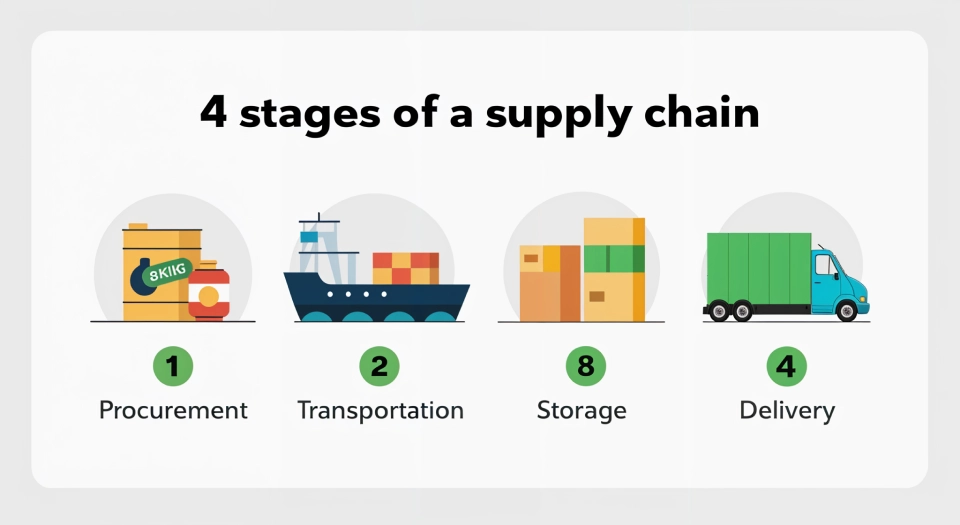
These challenges can make it difficult for small businesses to maintain a quick supply chain, but with the right strategies, these obstacles can be overcome.
Common Supply Chain Issues Faced by Small Businesses in India
1. Limited Financial Resources
Small businesses often operate on tight budgets, significantly impacting their supply chain efficiency. A small handicraft manufacturer might struggle to invest in quality raw materials, leading to inconsistent product quality. Budget constraints limit:
- Investment in advanced inventory management systems
- Ability to maintain optimal stock levels
- Access to reliable logistics services
2. Supplier Relationships
Establishing and maintaining strong supplier relationships can be challenging for small businesses due to their limited purchasing power.
Small businesses often need more favorable conditions than larger companies that can negotiate better terms with bulk orders.
Example: A small restaurant in Mumbai might struggle to secure consistent quality and pricing for fresh produce due to its lower order volumes compared to chain restaurants. However, using a local courier service in Mumbai can ensure timely deliveries of fresh ingredients.
3. Inventory Management
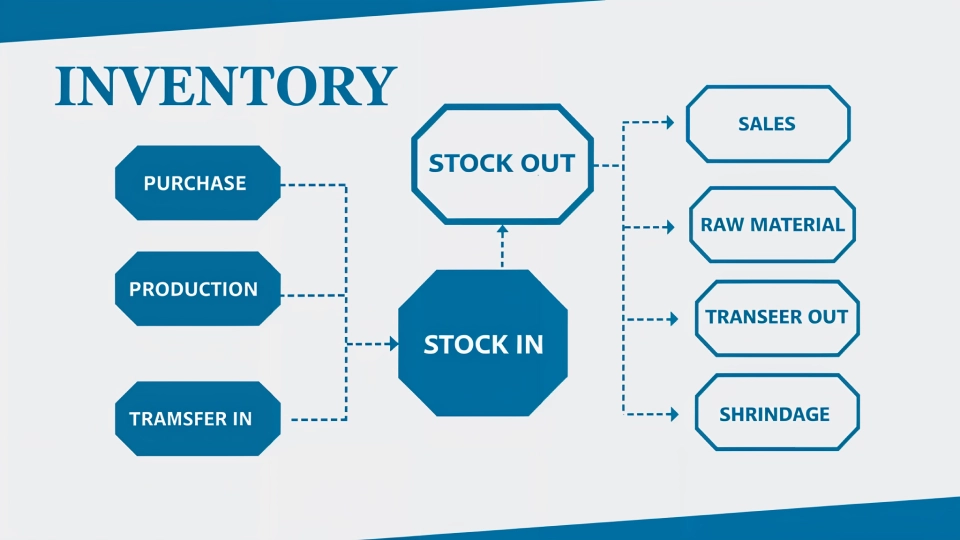
Effective inventory management is a common stumbling block for small businesses in India. Overestimating demand can lead to:
- Excess stock tying up capital
- Increased storage costs
- Potential product obsolescence
Underestimating demand can result in:
- Stockouts
- Missed sales opportunities
- Customer dissatisfaction
Both of which can cause substantial losses to the business.
4. Technology Adoption
Many small businesses in India are hesitant to adopt new technologies due to high upfront costs and the need for specialized knowledge. This reluctance can lead to:
- Inefficiencies in operations
- Increased error rates
- Slower response times to market changes
Example: A small textile manufacturer in Surat might continue using manual processes for production planning and inventory management, missing out on the efficiencies that could be gained from an integrated ERP system.
Tips for Managing Small Business Supply Chain and Logistics
1. Diversification
Diversification also allows businesses to compare prices and quality, potentially lowering costs and improving product quality.
2. Flexibility
Building a more adaptable supply chain enables businesses to respond quickly to changing market conditions and unforeseen disruptions. Flexibility can be achieved by maintaining buffer stock, having backup suppliers, and investing in scalable logistics services for small businesses.
This adaptability helps businesses maintain operations and meet customer demands, even during unexpected challenges.
3. Risk Management
Identifying and mitigating potential supply chain risks is essential for maintaining smooth operations. Businesses should conduct regular risk assessments to pinpoint vulnerabilities and develop contingency plans.

These tips for managing small business supply chains and logistics help overcome the challenges faced easily and quickly.
Leveraging Technology in Small Business Supply Chain Management
1. Automation Solutions
Implementing automation can significantly enhance supply chain efficiency:
- Automated order processing reduces manual data entry and errors
- Digital invoicing speeds up payment cycles
- Real-time shipment tracking improves customer satisfaction and operational visibility.
These tools save time, reduce costs, and allow staff to focus on more strategic tasks.
2. Digital Inventory Management
Modern inventory systems offer several advantages:
- Real-time stock visibility across locations
- Automatic reorder point notifications
- Demand forecasting capabilities
Tools like Zoho Inventory provide real-time visibility of stock levels across multiple locations. This ensures that businesses always know their inventory status, preventing stockouts and overstock situations.
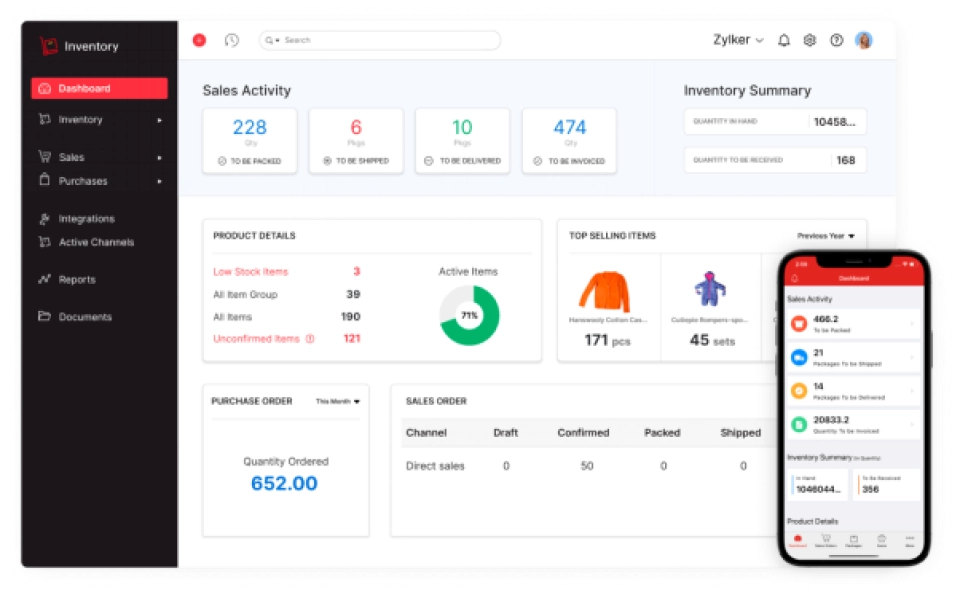
These features help prevent stockouts, reduce excess inventory, and optimize working capital.
3. Data-Driven Decision Making
Leveraging data analytics in supply chain management enables:
- Performance analysis of suppliers and products
- Identification of sales trends and patterns
- Predictive modeling for demand forecasting
Google Analytics can track sales patterns and customer behavior, providing valuable insights into which products are performing well and which are not. This information helps businesses adjust their inventory and marketing strategies accordingly, ensuring they meet customer demand effectively.
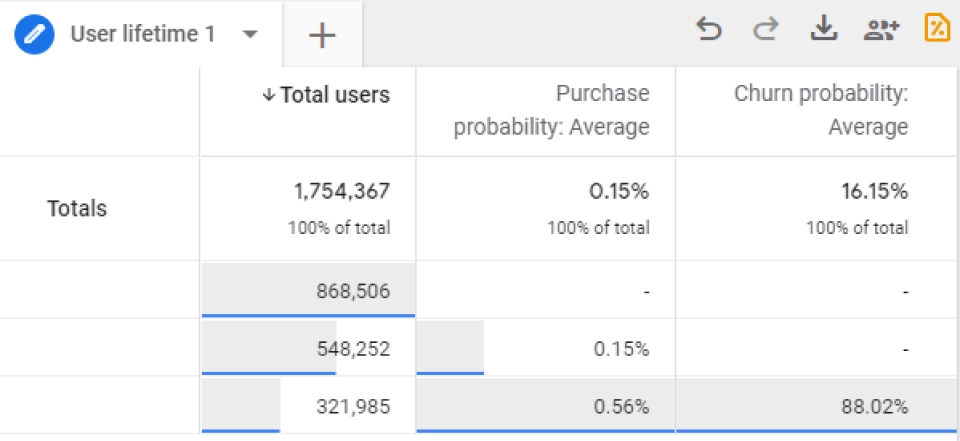
How Bombax Helps Small Businesses Strengthen Their Supply Chain
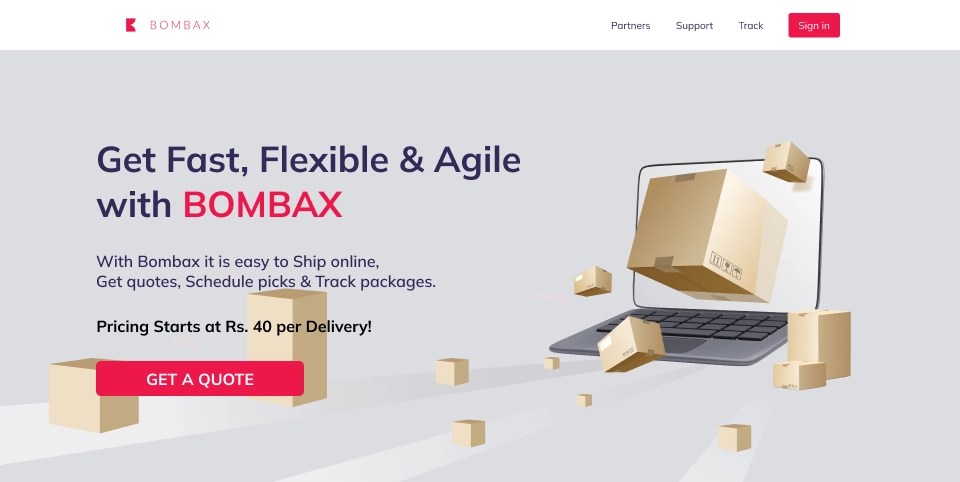
Their services include online shipping, real-time tracking, and scheduling pickups, all at competitive prices starting at Rs. 40 per delivery, making them a one-stop solution for all supply chain needs.
Features and Benefits
Wide Range of Shipping Options
Local Delivery: Same-day and next-day delivery options ensure urgent customer demands are met quickly, with same-day services offering pickup and delivery within 4 hours.
Domestic Air Delivery: Various options, including domestic air cargo services like same-day, next-business day, and standard delivery (48-72 hours), provide flexibility based on urgency and budget.
Domestic Surface Delivery: Coverage of 15,000+ pin codes with delivery within 2-6 days ensures comprehensive and timely shipments.
International Shipping
Smart Business Solutions
Multiple Order Creation: Streamlines order processing, saving time and reducing manual entry errors.
API Integration: Enhances operational efficiency with seamless booking and tracking.
Unified Platform: Simplifies logistics management by catering to all shipping needs.
Cost-Effective Pricing
Competitive pricing starting at Rs. 40 per delivery and up to 45% savings on shipping rates for business accounts help reduce operational costs making it ideal for small businesses.
Specialized Services
Work From Home Solutions: Manages IT asset movements with timely and secure deliveries.
Next Flight Out: Offers express pan-India delivery for extremely time-sensitive shipments.
Micro Warehousing: Supports stringent delivery timelines with 35 warehouse locations across India.
Next-Gen Logistics
Tech-enabled logistics services for small businesses that are agile, efficient, and sustainable, with a unique network model reducing handling by 25%, leading to faster TATs and lower costs.
Conclusion
Simplifying the small business supply chain is crucial for maintaining competitiveness and ensuring smooth operations. Effective strategies such as local sourcing, collaborative planning, and leveraging technology help small businesses to enhance their supply chain efficiency.
Bombax stands out as a valuable partner in this journey, offering comprehensive and cost-effective solutions that address the unique needs of small businesses. With Bombax’s expertise and support, small businesses can streamline their supply chains, reduce costs, and focus on growth and customer satisfaction.